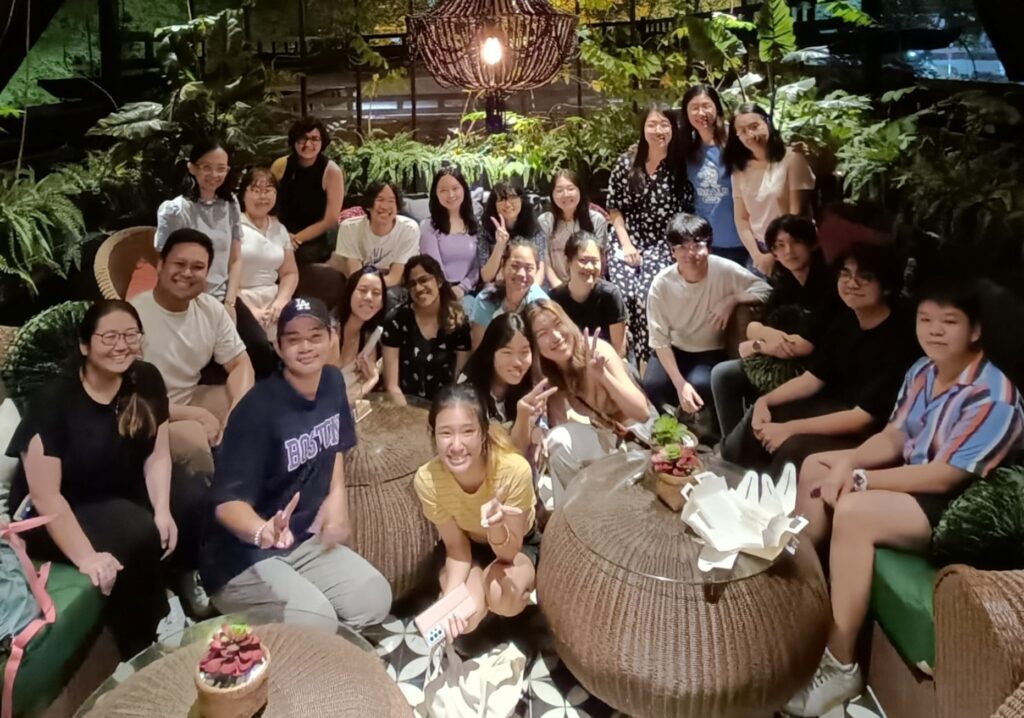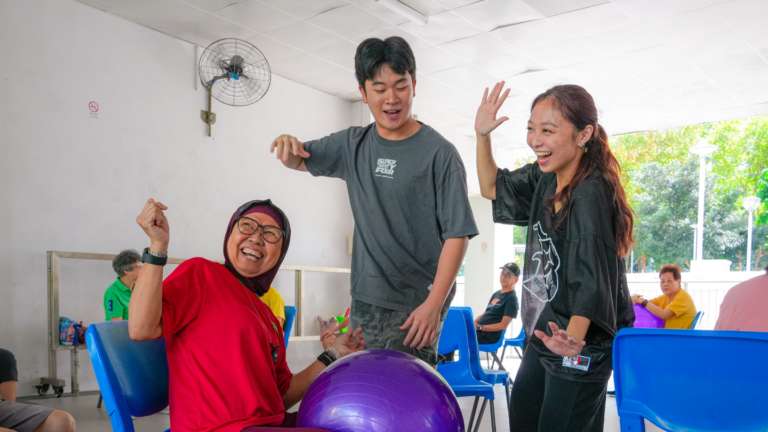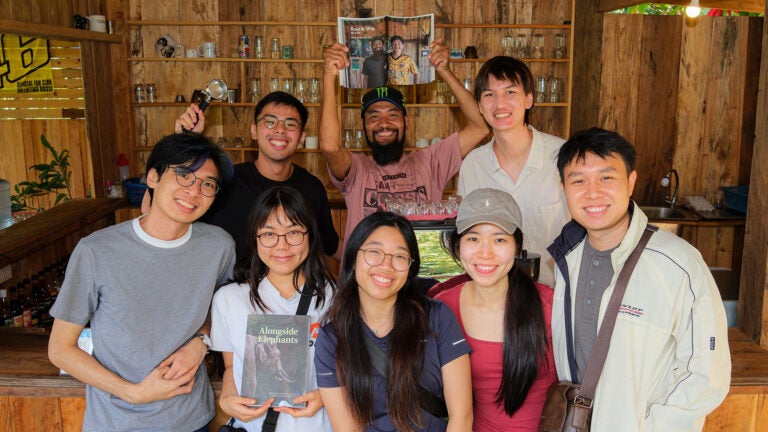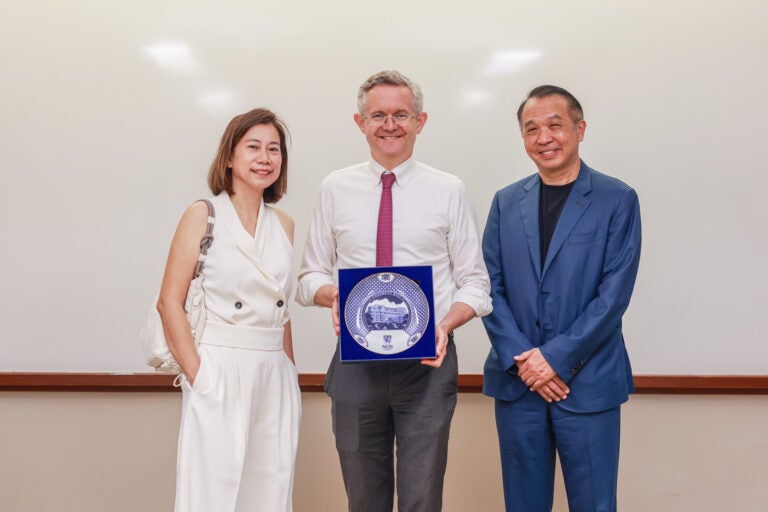
In this feature, we’re delighted to interview Dr Cheng Yi’En, an NUS College lecturer and a scholar of human geography. Brimming with lively enthusiasm, Dr Cheng shares his thoughts and experiences spanning GEx Mekong, book publishing during the pandemic, and how to maximise your overseas experience.
Dr Cheng is Associate of the Asian Migration Cluster at Asia Research Institute (ARI), and was previously a postdoctoral fellow at Yale-NUS. Dr Cheng completed a DPhil at the School of Geography and the Environment, Oxford University. An alumnus of NUS, he received a Master of Social Sciences and a Bachelor of Social Sciences in Geography. Presently, Dr Cheng is a member on the Editorial Boards of the journals Children’s Geographies and Global Networks.
By Zheng Chengzhi ’23
Dr Cheng, could you tell us about yourself, and what you’re working on right now?
I’m a human geographer by training and currently a lecturer at NUS College. I’m teaching mainly in the Special Programmes: GEx Mekong and IEx Innov-Ed. I’m also involved in a research project on student mobility, titled “Belt and Road Initiative and Student-mobilities across China-Southeast Asia”, funded by the MOE Tier 2 academic research grant. In this project, we’re looking at how the Belt and Road Initiative is impacting educational partnerships across China and Southeast Asia, and what these partnerships mean for the shifting geographies of student mobility across the two regions.
You’re teaching the foundational course, NSW2001: Understanding the Social World. Do you have a highlight or memorable classroom moment to share with us?
I guess there’re many memorable moments. This semester, we had a presentation in class, where I typically sit with students as part of the audience. That particular morning, I don’t know why, but I was sitting alone and nobody (laughs) — all the other students were sitting away from me. So I just murmured under my breath: “Oh, why is nobody sitting next to me?” And I think this student heard me; he just came and sat down by my side. That was a very simple gesture, but I felt it was very heartwarming.
Having this kind of mutual understanding and mutual empathy, to me, represents the little moments that brighten up the classroom.
You’re designing and leading the upcoming GEx Mekong programme. Could you share a little about it?
As with all GEx programmes, GEx Mekong is going to be a one-month field study immersion programme. My GEx is especially interested in exploring the broad question of how development and migration are driving transformation in Asia, particularly Vietnam and the Mekong Delta region, and what innovations emerge to grapple with these transformative changes.
One of the key things that I want to bring into GEx Mekong is the theme of education. When we visit Ho Chi Minh City, we will be visiting different universities to engage in cultural exchange and make new friends. We will make use of these experiences to reflect on our own educational systems and pathways, and how that shapes our individual fates and fortunes.

Beyond the urban, we will also explore how education manifests in rural environments of Vietnam, in the Mekong delta. One of the key partners for both my IEx and GEx is EcoVietnam Group, an NGO that runs a community library in Tra Vinh province to address educational gaps, and children and young peoples’ capacity to aspire. We’ll be spending time in the community library to really think through the issues of how rural-urban migration is driving changes in the provinces, and how that shapes young people’s aspirations towards education and the future. In the process, we hope to work with the community and contribute in our own ways.
The other theme is on food. Food is one of the contact points when learning about new cultures, right? I’m really interested to get students to think about migrant food cultures. How are migrant food ways changing the local culinary scenes of Ho Chi Minh City? How are migrant food entrepreneurs changing the urban landscape? These are questions I’m hoping to curate into some kind of urban ethnography during the GEx Mekong program.
Various field trips and experiences for students!
Ultimately, as much as GEx is a curated field studies programme, the bulk of learning often happens when students begin to explore surprising moments through encounters with both the strange and familiar. It’s also about how all of us — students and teachers alike — figure things out as we go along.
As a human geographer, you study education and youth mobilities. What drives your interest in the subjects?
I think it’s a confluence of events and encounters. In my home discipline of human geography, I was very interested in two subfields, the geographies of education and young people, because reading the literature gave me the framework to make sense of my own educational journey. But on the other hand, I was also very fascinated by human migrations and mobility issues. I gradually began to think about how to have the best of both worlds. So what better way than to combine them, and explore the intersection? The focus on student and youth mobility became that intersecting point for me to engage with scholarship from both a disciplinary [human geography] as well as an interdisciplinary [migration studies] angle.
You recently published a book titled International Voices in the Asia Pacific: Letters to Coronavirus. The book assembles the voices of twenty international students during the pandemic, in the form of letters addressed to COVID-19. What inspired you to write it?
Let me describe it chronologically, I’ll try and make sense of it as we go along (laughs). This began when COVID 19 struck, when universities like NUS went into lockdown in accordance to the Singapore regulations. Not only were classes cancelled, research activities were also halted. In a way, I was trying to figure out what to do with my research. It was then that I thought: Okay, there’s so much information around COVID-19 and how it’s impacting universities and international student migration. So I began to collect all these commentaries and news articles. I went on WordPress and started dabbling around, making a simple website, curating the information I collected.
Sometime in May, three months after I started the project, an international student wrote to me on Twitter, where I share updates about the resources I’ve curated. The student said, you know, you have all these commentaries and news articles, but are missing the international students’ voices themselves. Why don’t you do a call for international students to contribute to the website by sharing their experiences during the pandemic? I thought that was a great idea, did as suggested, and began to receive short blog pieces. And one day I thought, maybe I should do something more properly with what I have on the website. The digital medium is a great space, but why not just make it into a book — one which is not a typical edited volume, but something structured more differently?
Somehow along the way, I got in touch with an ex-classmate of mine, an aspiring illustrator. We caught up over lunch and I shared with him my book idea. He gamely accepted the invitation to work on eight illustrations based on the chapter themes, and so I went ahead and put together a proposal for a book. And that gave birth to a book that isn’t a conventional scholarly monograph, and I don’t think I meant it to be that way. I wanted to have a fair share of different opinions from various people — academics, artists, and students themselves — about how the pandemic has impacted international education and mobilities.
Finally, what advice do you have for students who’re looking to make the most out of their university exchange programmes?
When this question is asked, the conventional advice is for students to go out there and learn more about the city, the region, and the local culture. I fully agree with all of this. But I think it needs to be a step beyond that. I’m sure when students go for overseas exchange or study abroad, they would surely want to experience more about local cultures. But, in addition to gaining the experience and exposure, students should think about what they can do with that experience and exposure, so that it’s not just experiencing for the sake of experiencing.

If you go on GEx or IEx, for example, you’ll learn innovative ideas from your overseas partners. How might these ideas be applicable to Singapore, or not? If you go on exchange programmes, are there any student activities or ways of doing things that you think are interesting? For example, if there’s a particular initiative around student diversity or cultural diversity, how might that idea be applicable to NUSC? How can we bring that back?
I think, at the end of the day, it’s about the flow and exchange of ideas; not just letting ideas stay bounded in their places.
*The interview above was edited for length and clarity.


